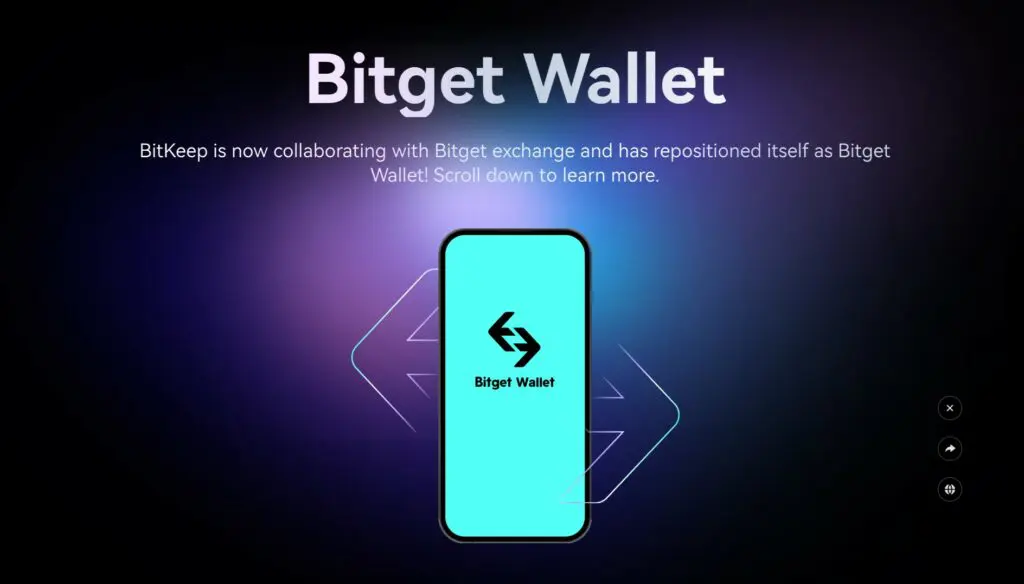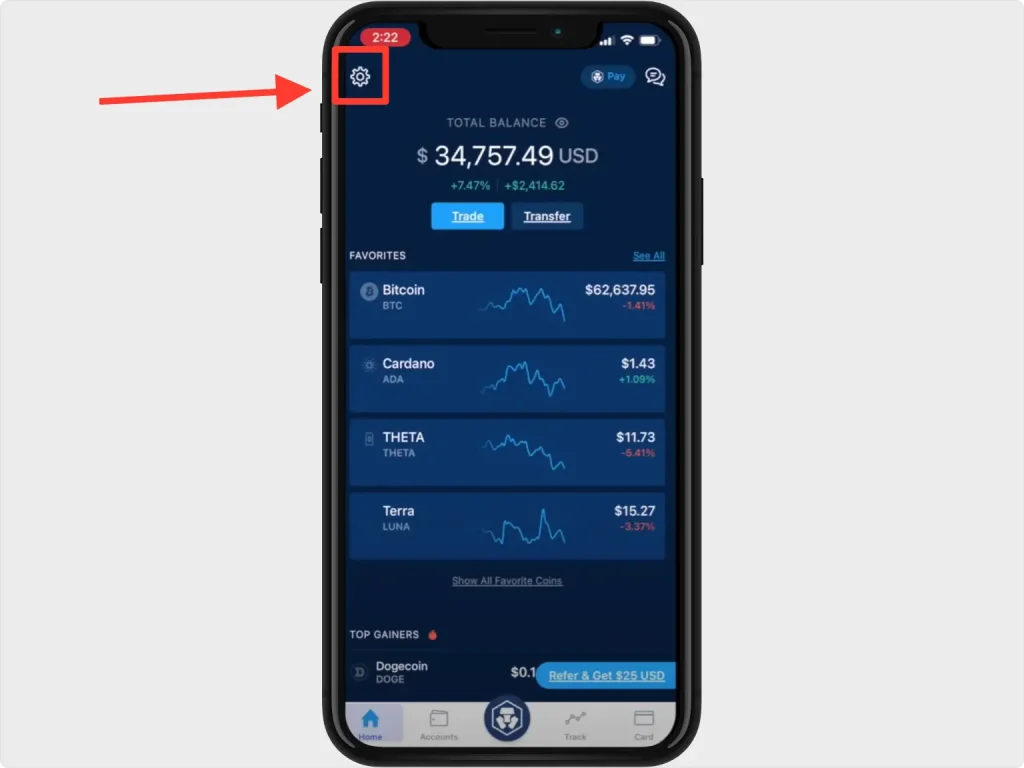Secure desktop crypto wallets are your money’s digital safe. You wouldn’t leave cash lying around, so why risk your digital coins? I’ll guide you through the maze of safety steps to keep your crypto secure. Even the smartest traders have lost it all by skimping on security. So buckle up! We’re diving deep into private key encryption and why it’s a must. Plus, we’ll decode those cryptographic protocols that might sound complex, but I promise, they’re your best buddies in the fight against hackers.
But hey, this isn’t just about getting smart with tech. It’s about good habits too. Ever thought about security audits for your wallet? Or why those techy folks push open-source wallets? We’re covering it all. On top of that, get ready to power up your wallet with two-factor authentication and learn how auto-locking can be a lifesaver. And for the grand finale, we unravel the debate of cold storage versus desktop wallets. What’s safer? What’s more practical? Stick with me; become a secure desktop wallet wizard.
Understanding Cryptographic Security for Desktop Wallets
The Importance of Private Key Encryption
Imagine your digital wallet like a safe. You wouldn’t want just anyone opening it. The private key is like that safe’s unique code. Only you should know it. This key lets you into your wallet and sign off on crypto deals. That’s why private key encryption matters. We use complex math to scramble the private key. This keeps your safe, well, safe. Keeping this key secret is number one in crypto wallet best practices. Here’s a fact: if someone gets your private key, they get your digital coins. So, we lock it up tight with encryption. It’s the heart of wallet security.
Now, what’s encryption? It’s when we turn your private key into a code. This code is so tough that no one can crack it without the right password. Think of it like a treasure map that only you can read. It makes sure thieves can’t sneak in. If you keep your map safe, your treasure stays yours.
Implementing Cryptographic Security Protocols
Next up, we need solid security rules, or protocols, in our wallet software. That means building walls and traps to stop hackers. We do this with things like two-factor authentication. This double-checks it’s really you trying to get in. Just like having a guard ask for a secret password. We put in layers of protection around your wallet. It’s not just a lock. It’s a lock, plus a guard dog, plus an alarm system.
Now, these protocols aren’t just any rules. They’re built on the back of really smart math. Math that can stop the sneakiest of hackers. They keep your digital cash locked down so you can sleep at night. And that’s not all. We test these protocols over and over. We’re like detectives looking for weak spots, always searching to make it better.
And let’s not forget about the cold storage for digital currency. Cold storage means keeping the key to your wallet completely offline. Just like burying your treasure on a deserted island. It’s super secure but not as easy to get to when you need it.
Now, remember the treasure map? Well, for a wallet, we’ve got the seed phrase. This is a bunch of random words that can bring your wallet back if anything goes wrong. It’s a big deal. Writing down your seed phrase and keeping it in a safe place makes sure you can always reach your coins. But if someone else finds it, they can get to your treasure too. So, we tell folks to treat it just like their private key. Keep it under lock and key.
Safe, secure digital wallets for cryptocurrency depend on how well we keep secrets. The secret of the private key, hidden by encryption, and the secret of the seed phrase are top priority. The better we keep these secrets, the safer your coins are. That’s what makes the difference between a good wallet and a great one. And that’s what we’re all about – making great wallets that let you rest easy, knowing your digital gold is well-kept.
Mastering Best Practices in Desktop Wallet Management
The Role of Regular Security Audits
Keeping your crypto safe starts inside your desktop wallet. A security audit is like a health check for your wallet. It spots any weak points before they become a hacker’s way in. Think of it as your digital armor; it needs to be strong and without gaps.
First, look for any unusual activity or login events. Then, check that your wallet software is up to date. Outdated software can be a hacker’s best friend. Make sure you have the newest version with top-notch security patches.
Security audits also check your wallet’s backup. Ask yourself; if my computer crashes, will I still have my crypto? A proper backup plan is a net under a tightrope. It’s peace of mind, knowing you can recover your assets.
Don’t forget about your private key. This is your own secret code to your crypto. Keep it under lock and key – no sharing! And your seed phrase, it’s like a secret map to your treasure. Losing your seed phrase means losing your crypto. So guard it well.
Remember, regular security audits are not a one-time deal. Make it a habit, like brushing your teeth, but for your wallet’s safety.
The Advantages of Using Decentralized and Open-Source Wallets
Now, let’s talk about decentralized and open-source wallets. They are a big deal in the world of secure digital wallets for cryptocurrency. A decentralized wallet puts you in the driver’s seat. There’s no middleman peeking at your coins. It’s just you and your crypto, sitting in a tree.

Best mobile defi wallets
Open-source wallets are like an open book. They let clever coders from around the world look for bugs. If there’s a hole in the ship, someone will spot it and patch it. Transparency in crypto wallet best practices is key. It lets you trust the software you use. After all, it’s your money at stake.
With a decentralized wallet, you also dodge the danger of a single point of failure. Think about it; if a hacker hits a central server, everyone’s money is up for grabs. But with a decentralized system, hackers have to work much harder.
Open-source wallets also mean more eyes and more fixes. It’s like having a team of watchdogs, sniffing out the bad stuff. Each update makes your wallet safer and more user-friendly.
But remember, no wallet is unbeatable. So, use a mix of both cold storage for digital currency and a good desktop wallet. Think of it as not putting all your eggs in one basket. Keep your large savings locked away cold. Use your desktop wallet for daily deals.
Mixing security audits, open-source software, and the power of the group, you’re setting yourself up for success. Stay smart, stay safe, and keep learning. That’s the key to great cryptocurrency management on PCs. So, let’s keep our wallets tight and our crypto safe. Together, we’ve got this!
Exploring Advanced Safety Measures in Wallet Software
Integrating Two-Factor Authentication for Additional Security
Two-factor authentication, or 2FA, adds a layer of security to your crypto wallet. It’s like a double lock for your digital cash. First, you have your password. That’s step one. But with 2FA, you need a second key. This could be a code from your phone or a fingerprint. Hackers need both to get in. This makes it really tough for them. Most secure digital wallets for cryptocurrency use this.
2FA is vital in crypto wallet best practices. When you activate it, you’re taking a big step to stop unwanted guests. You’re saying, “You need more than my password”. And that second key changes all the time. So, a code that worked one minute won’t work the next. This keeps your wallet safe from hackers and is a top safety feature in crypto software.
With 2FA, you’ve got peace of mind. You log in, and you get a text or use an app for that second key. It’s an extra moment’s work, but it’s worth it. It’s the bouncer at the door, only letting you in. Crypto management on PCs needs this. It’s a small task for a big boost in safety.
How Auto-Locking Features Protect Your Crypto Assets
Now, let’s talk about auto-locking. This is your safety net. You leave your PC, and the wallet locks itself. Simple, right? It’s a must-have feature in wallet software. You’re human. You might forget to log out. That’s where auto-locking steps in.
Auto-locking uses a timer. You pick the time. Five minutes? Ten? It’s up to you. After that time with no activity, your wallet locks itself. Even if someone sneaks onto your PC, they can’t get to your crypto. It defends your digital money when you’re away.
Imagine this: You’re busy with life. The doorbell rings, or your phone buzzes. You rush off. A minute becomes an hour. You left your wallet open on the desktop. If someone else gets on, what’s stopping them? Here’s what: auto-locking. The wallet would’ve locked itself, keeping your coins safe. It’s smart, easy, and a big help in hacking prevention for wallets.
Every time you come back, you log in again. It’s second nature. Like putting on a seatbelt in a car. You do it without thinking, for safety. The same goes for your crypto—automatic, simple, and safe.
Auto-locking pairs well with 2FA. It’s another layer in your security cake. More layers, more protection. Wallets with these features are the fortresses in the world of crypto. They bring together safety and convenience. Always look for these when you’re choosing a wallet. They’re important in secure digital wallets for cryptocurrency. Your digital treasure is too valuable not to.
In conclusion, don’t skimp on 2FA or auto-locking. They’re easy to use and offer big-time security. They’re key players in cryptocurrency management on PCs. Adopt these measures. They guard your crypto day and night.
Cold Storage vs. Desktop Wallets: A Comparative Analysis
Evaluating Hardware Wallet Security
When it comes to secure digital wallets for cryptocurrency, hardware wallets are top-notch. They are like safe boxes, only for your digital cash. These gadgets keep your coins offline, away from hackers. This process is cold storage for digital currency. Your private keys stay safe because they never leave the device. This is private key encryption made simple.
Hardware wallets are small, easy to use, and you can keep them in a drawer. Plug them in when needed, and your assets are ready to move. They support many types of coins, so multi-currency support isn’t a problem. Big names like Ledger and Trezor offer trusted desktop wallet providers with good safety features in crypto software.
Yet, they’re not perfect. If you lose the device, you could be in trouble. But, wallet recovery options exist if you keep your recovery seed safe. This is where you write down or print a unique set of words. You use these words to get your coins back if things go south. It’s crucial to keep these words secret and secure.
These devices cost money, and if you trade a lot, they’re less handy. Every trade requires you to connect the hardware to your computer. This slows things down.
The Merits and Demerits of Desktop Wallets for Day-to-Day Use
Now let’s talk desktop wallets. They are like having your wallet in your computer. Desktop wallets are handy for those who trade often. You can access your coins quickly and see all your info on the screen. They come with user-friendly crypto interfaces and make trading smooth.
Good desktop wallets have wallet seed phrase security as well. They ask you to note down a recovery phrase, just like hardware wallets. Keep this phrase in a safe place! Desktop wallets use cryptographic security protocols to keep your coins secure. Look for features like two-factor authentication and auto-locking to help stop unauthorized access.
Updates are important too. Always keep your wallet software up to date to protect against new threats. Backups are another must. Desktop wallet backup tools let you recover your wallet if your computer crashes. With regular backups, you’ll have peace of mind.
But desktop wallets are not as secure as hardware wallets because they’re connected to the internet. That makes them more open to hacking attempts. You need to be careful about security. Malware can also be a risk, so run antivirus software and be cautious what you click or download.
Desktop wallets are better for active users, while hardware wallets suit those looking for long-term, secure storage. Managing your cryptocurrency on PCs means choosing the right tool for the job.
Whether you go for cold storage or a desktop option, vetting crypto wallet software is vital. Pick providers that stand out in desktop application security. And always remember, your crypto’s safety is as strong as your weakest link. So focus on all aspects, from your wallet’s features to your own habits.
We’ve dug deep into desktop wallets, from how they use special codes to keep your private keys safe to setting up strong security steps. We also looked at why you should check your wallet’s guards often and go for wallets that anyone can check and improve. Don’t forget about adding extra locks like two-step checks and auto-locking to keep your crypto extra safe.
Plus, we compared cold storage wallets to desktop ones to help you pick the right one for daily use. Keep your crypto secure by following what we talked about and always stay updated on new ways to protect your coins. Stay safe and smart with your digital money! Follow Dynamic Cryto network to update more knowledge about Crypto.
Q&A :
What is a secure desktop crypto wallet?
A secure desktop crypto wallet is a type of software designed to store, manage, and secure your cryptocurrency assets on your desktop computer. Unlike online wallets, they are not hosted on servers; they reside on your private computer, providing an added layer of security by keeping your private keys offline when you’re not actively transacting.
How does a desktop wallet enhance crypto security?
Desktop wallets enhance crypto security by allowing users to have full control of their private keys, which are necessary for accessing their cryptocurrency holdings. Since the wallet is stored on your desktop, it is less vulnerable to online hacks and unauthorized remote access as long as your computer is secure and malware-free. Furthermore, many desktop wallets encrypt the wallet data, providing an additional protection layer.
Are desktop crypto wallets safer than online wallets?
Desktop wallets are typically considered safer than online wallets (or hot wallets) because they reduce the risk of online attacks. Since desktop wallets store information locally on a user’s computer and can be used offline, they are not as susceptible to breaches that can affect wallets stored on internet-connected servers. However, users must ensure their desktop is secure from malware and physical theft.
Can I use a desktop wallet for different types of cryptocurrencies?
Yes, many desktop wallets are designed to support multiple types of cryptocurrencies. They are known as multi-currency wallets. With a multi-currency desktop wallet, users can manage a diverse portfolio of digital assets without needing to install separate wallets for each currency, simplifying the user experience and streamlining portfolio management.
What should I consider when choosing a secure desktop crypto wallet?
When choosing a secure desktop crypto wallet, you should consider factors such as the types of cryptocurrencies supported, the wallet’s security features (like encryption and multi-signature options), its user interface and ease of use, any associated fees, customer support quality, and the wallet’s reputation within the crypto community. Compatibility with your operating system (Windows, macOS, or Linux) is also essential. Ensure the wallet comes from a trustworthy provider and has a strong track record of security and reliability.


